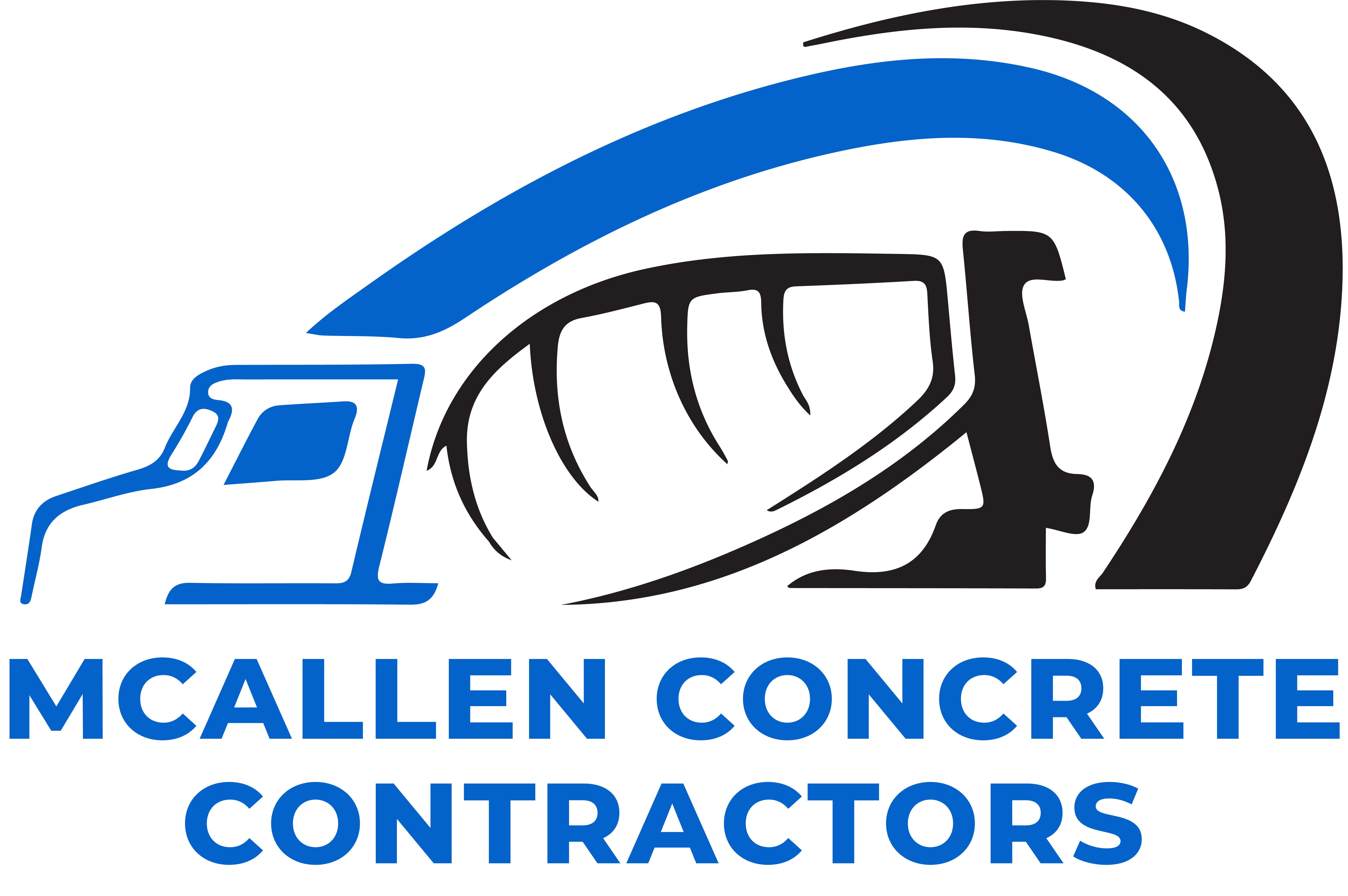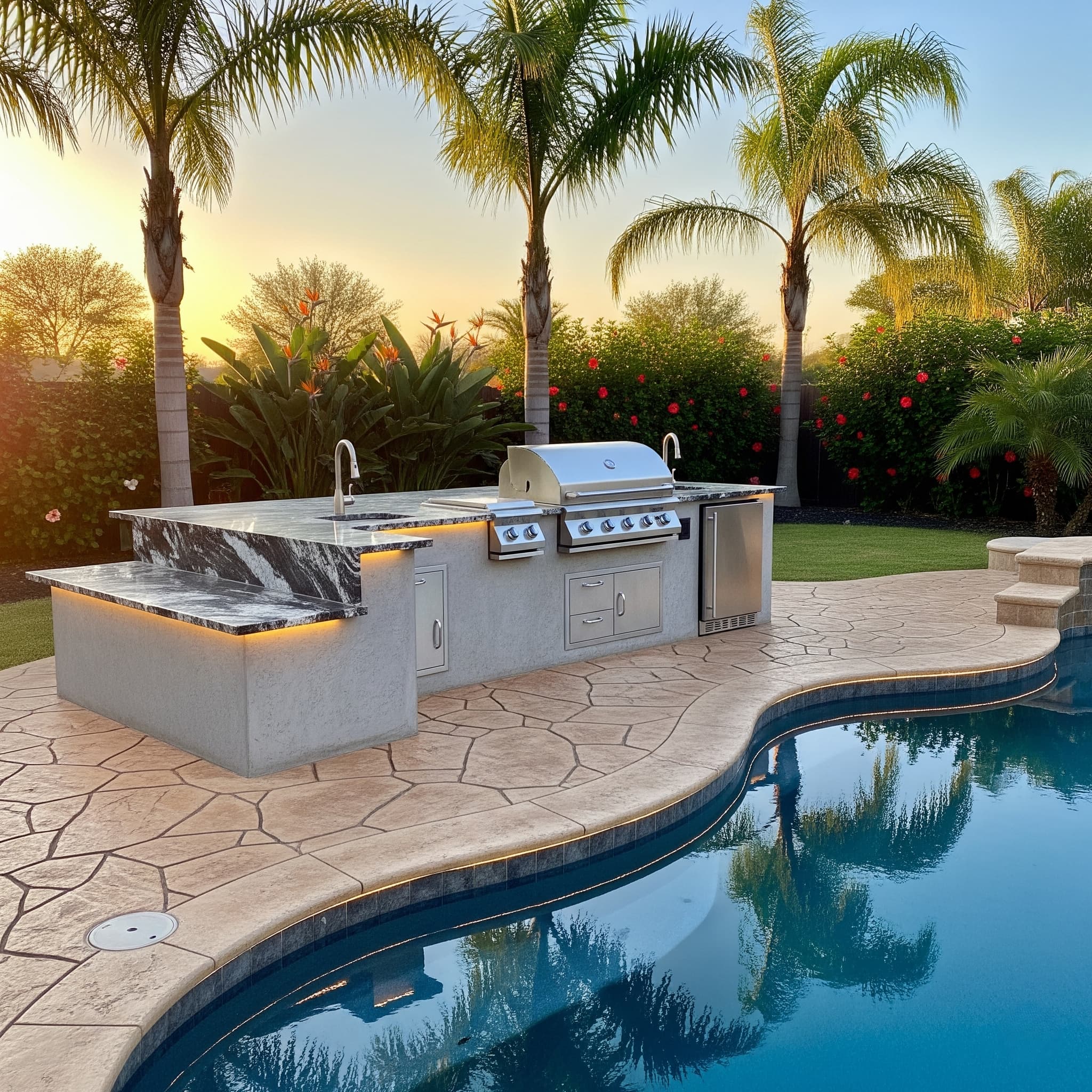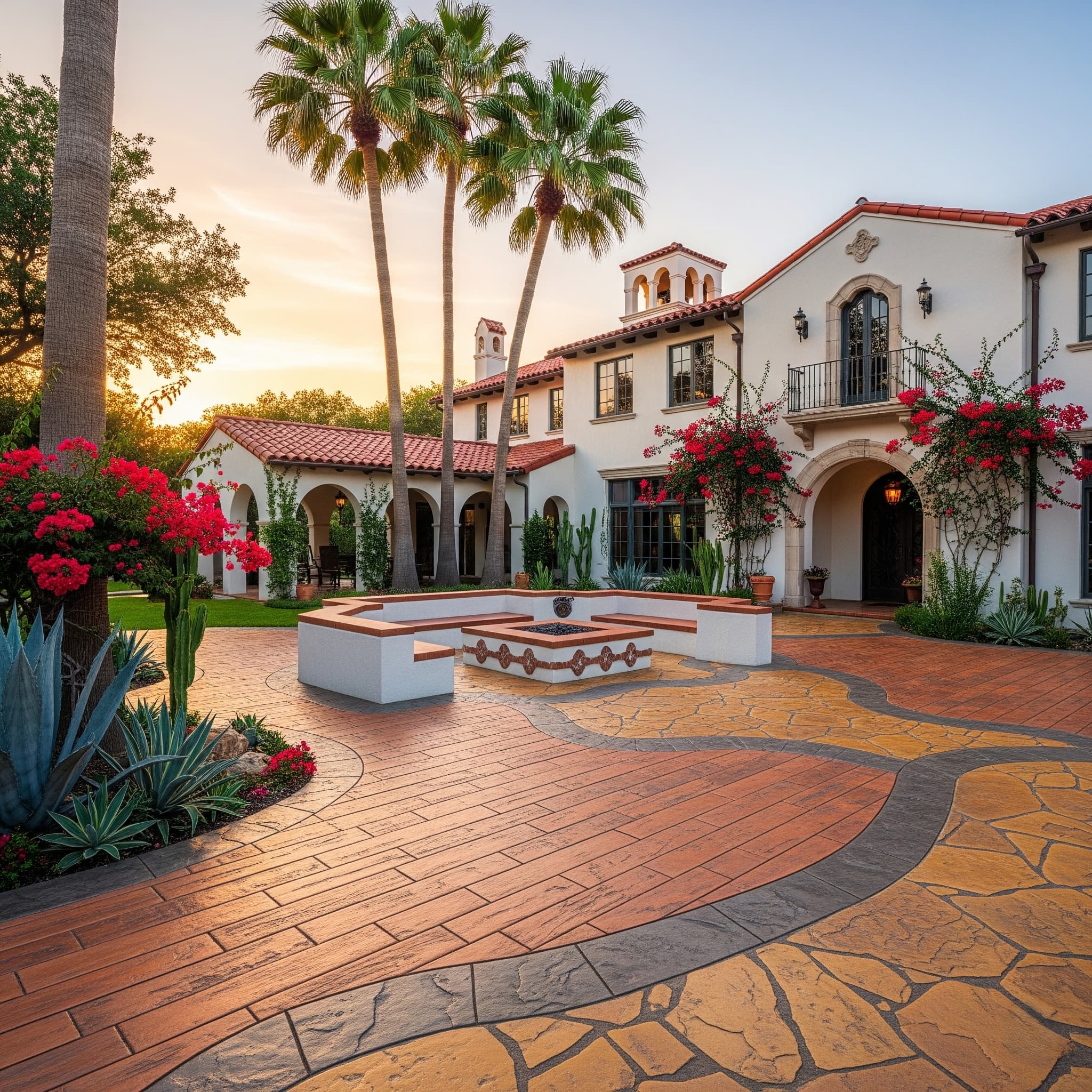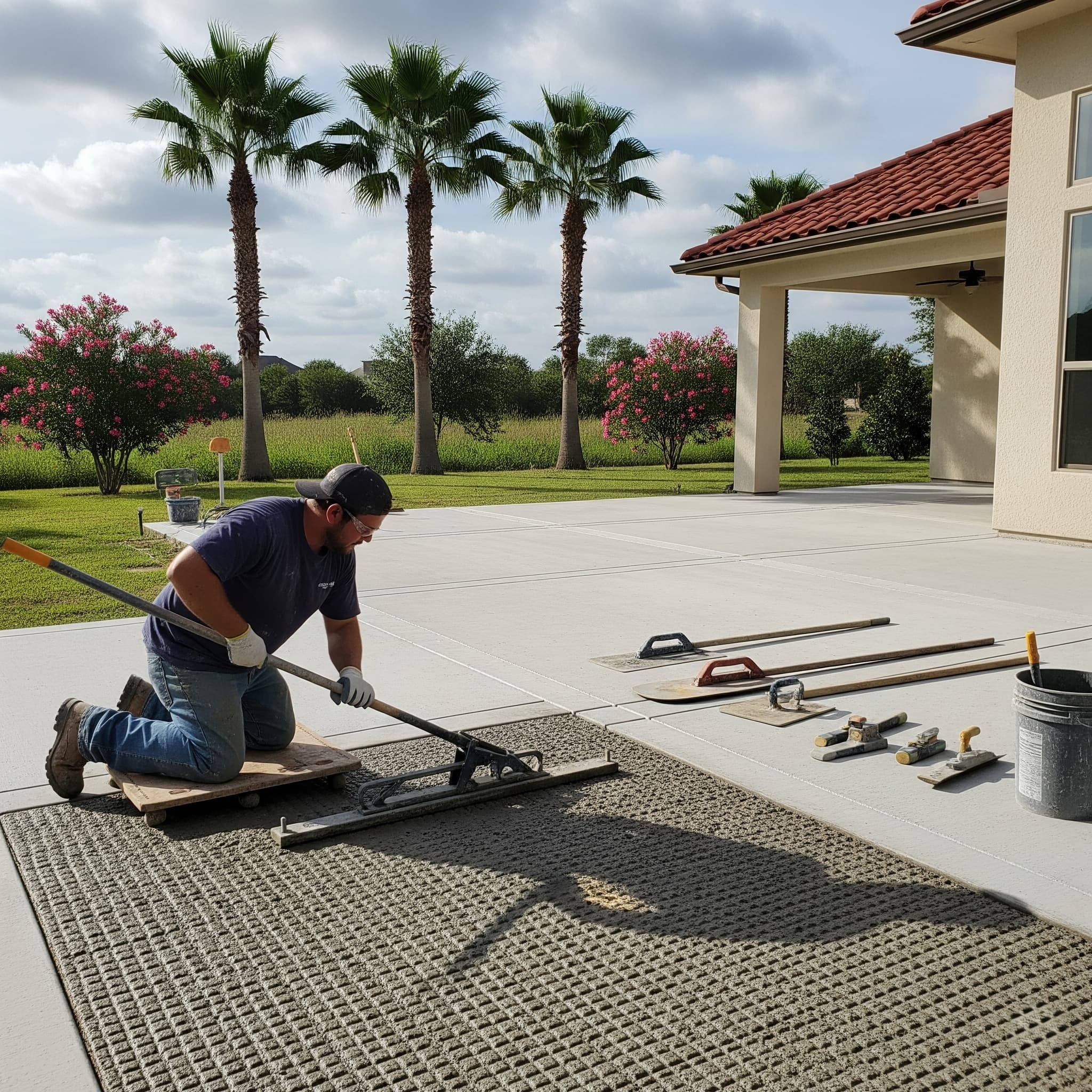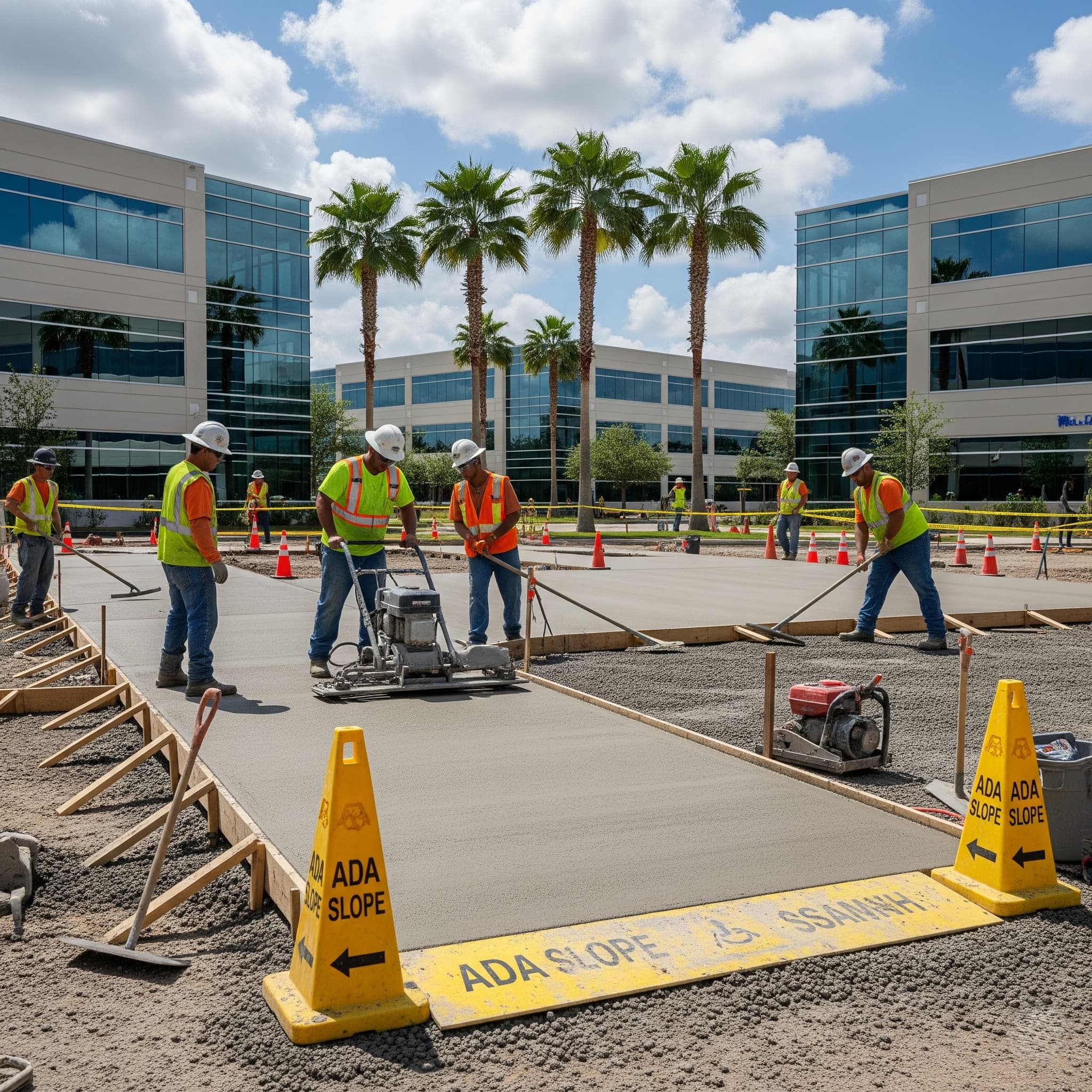
Concrete Resurfacing Guide for McAllen Businesses
Concrete Resurfacing McAllen
McAllen’s large commercial business area needs tough, professional quality surfaces that can handle high levels of traffic and have a good look to show off the company image in positive ways. A low-cost method of providing solutions to companies in the downtown business area (from the Chase Tower area to the many retail areas along 10th St.) is by using commercial concrete resurfacing. Office building managers, retail store managers, warehouse and plant managers all want to be able to understand their options for restoring their existing concrete, so they can make educated decisions about balancing the short term needs of their business with long term operational efficiency. Improving safety, enhancing appearance, and extending the life of your concrete investment are just some of the benefits of professional surface restoration, without the expense and interruption of replacing it entirely.
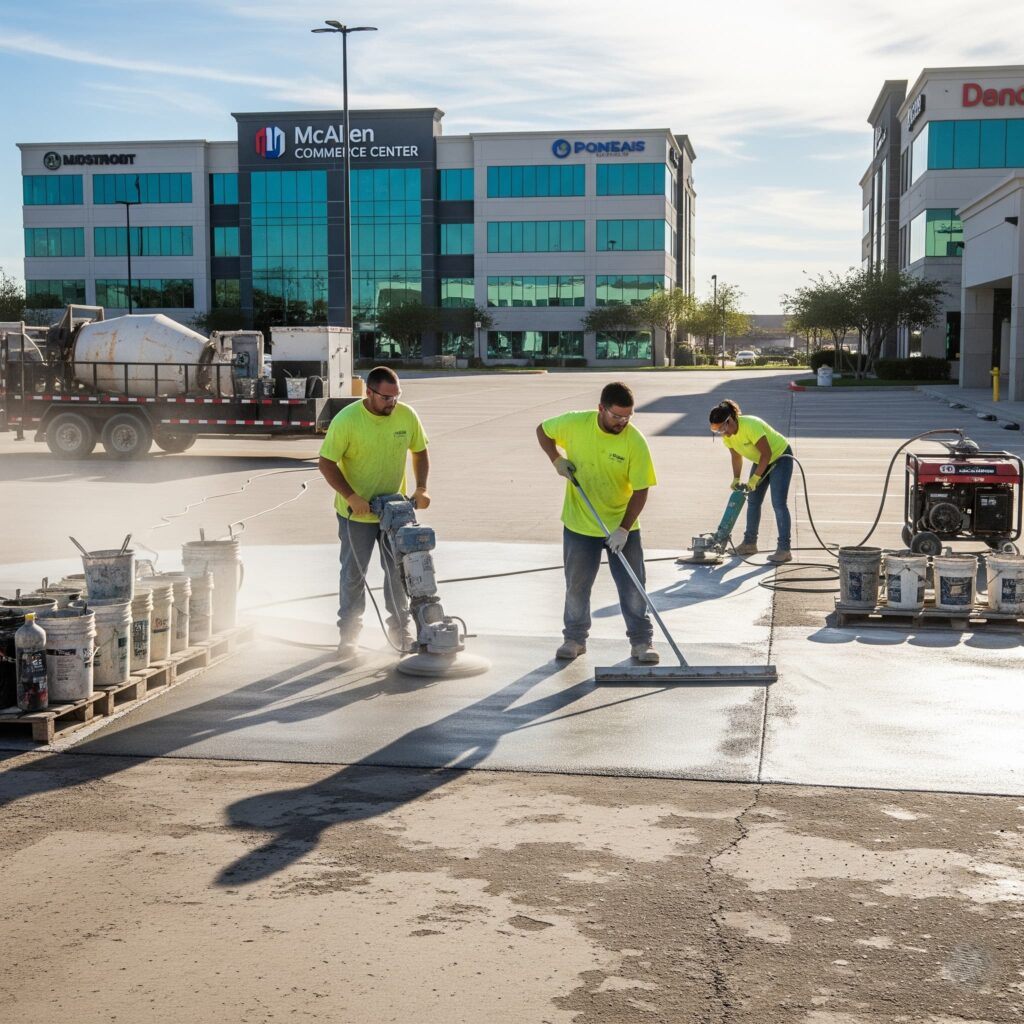
Understanding Commercial Concrete Resurfacing Applications
Concrete resurfacing is an alternative to replacing existing concrete surfaces; it is a method of restoring the function and appearance of the surface by using various overlay systems. Commercial resurfacing has many different uses, ranging from simple protective coatings to decorative systems that will enhance a company’s professional image and the customer experience.
Resurfacing addresses some of the most common issues related to high-traffic commercial business environments,s such as surface wear, minor cracking, staining, and general deterioration.
Commercial Concrete Floors Demand Durable Surfaces
Commercial floors have to withstand the daily operations of the business while maintaining the standards of professional appearance. The average cost of resurfacing is $3 to $10 per square foot for basic commercial applications. For specialized decorative or high-performance applications, the cost can be up to $15 to $25 per square foot. This is much less expensive than the cost of replacing the entire floor, yet it offers the same level of durability and functionality.
Types of Commercial Concrete Surfaces
The types of surfaces used in commercial applications depend on the environment of the business (retail, manufacturing, office) and the functional needs of the operation. Retail stores use decorative overlays to create a welcoming environment for customers. Manufacturing facilities require durable, chemically resistant surfaces. Office buildings use polished systems to create a sophisticated appearance while minimizing maintenance. Warehouse and distribution centers require heavy-duty industrial resurfacing capable of supporting the weight of forklifts and other heavy equipment. In these applications, structural performance is more important than aesthetics, and the surfaces should be resistant to slipping, impact, and easy to maintain in order to minimize the disruption of business operations.
Cost Analysis for McAllen Business Properties
Commercial resurfacing is relatively inexpensive when compared to replacement costs. The cost of resurfacing varies depending on the project scope, the condition of the surface to be resurfaced, and the performance requirements of the surface based on its intended use. Basic overlay systems suitable for light commercial use typically cost between $3 to $5 per square foot. Premium systems for heavy industrial use can cost anywhere from $15 to $20 per square foot. When comparing resurfacing to replacement, the cost savings of resurfacing are significant, especially when the cost of removing the old surface and disposing of the debrisise included in the total replacement cost, which is typically $8 to $15 per square foot.
Economies of Scale
Commercial resurfacing can also provide economies of scale for large businesses, as contractors will offer a discount for larger jobs (typically those that exceed 5,000 square feet). The majority of businesses located in the established business corridors of McAllen are eligible for volume pricing, which makes large-scale, comprehensive upgrades to facilities a viable option financially.
Additionally, the downtime associated with completing the resurfacing process is significantly shorter than the downtime associated with completing the replacement process, thus minimizing lost productivity and revenue during restoration.
ROI of Resurfacing
Businesses can expect a direct ROI on strategic resurfacing investments, whether measured in terms of increased operational efficiencies, an enhanced professional image, or decreased long-term maintenance costs. Well-maintained commercial surfaces lead to a positive impression for customers, employee satisfaction, and ultimately, the value of the property. Businesses in high-visibility locations such as the McAllen Convention Center or downtown area will greatly benefit from a professional-grade surface appearance.
Another key ROI component of resurfacing is energy savings. Modern overlay systems can include reflective properties that help reduce lighting and HVAC costs. Additionally, slip-resistant surfaces reduce liability risks and improve workplace safety records, which may result in reduced insurance premiums and workers’ compensation claims.
Preparation of the Surface and Evaluation
Before the commencement of the commercial resurfacing project, there must be a thorough surface evaluation to determine the substrate condition and what type of overlay would be best suited for the surface. A professional evaluation assesses the structural integrity of the surface, evaluates contamination, and determines if the existing coatings are compatible with the new overlay. Preparation of the surface typically accounts for 30 to 40 percent of the total project cost and will directly impact the longevity and appearance of the finished product.
Many commercial facilities pose additional challenges, such as oil stains, chemical exposure, and existing sealers that may require specialized removal techniques. Typically, power washing, grinding, and/or chemical etching may need to be performed to properly prepare the surface for the new overlay, thus achieving a surface profile that maximizes the adhesive properties of the new overlay. Proper surface preparation and preparation techniques ensure a high-quality finish and warrant the investment made in the resurfacing process.
Environmental and Safety Considerations
McAllen’s subtropical climate has an impact on both the timing of the resurfacing application and the selection of materials to produce optimal results. High humidity requires close monitoring of moisture levels during application, while varying temperatures impact the drying times and resulting characteristics of the final surface. Experienced contractors understand the environmental factors present in the McAllen region and adapt their methods accordingly to produce uniform quality results.
In addition to adapting their methods to meet environmental considerations, contractors must also implement safety protocols during commercial resurfacing projects to accommodate ongoing business operations, customer access, and employee safety requirements. Ventilation, dust control, and staging procedures must be implemented to minimize disruption of business while maintaining safe working conditions for employees, customers, and visitors.
Decorative Systems for Specific Business Types
Retail businesses can benefit from decorative concrete systems to create an attractive and welcoming customer space, while being able to withstand the wear and tear of foot traffic and shopping carts. Stained and polished overlays offer a sophisticated look and feel that is complementary to current retail designs and are a cost-effective alternative to premium flooring options.
Industrial and warehouse businesses require heavy-duty resurfacing systems to withstand the load of industrial equipment and chemical spills, abrasions, and impact damage. Epoxy-based systems offer exceptional chemical resistance, while polyurethane topcoats offer superior abrasion resistance for high-traffic areas. While industrial applications prioritize performance over aesthetics, they can still produce clean and professional-looking surfaces.
Food Service and Healthcare Applications
Medical facilities and food service establishments require specialized antimicrobial and easy-to-clean surfaces that meet stringent hygiene standards. Seamless overlay systems eliminate grout lines and surface irregularities where bacteria can collect, and non-porous surfaces resist staining and make cleaning easier for health departments and regulatory agencies.
Specialized applications may require special certification and compliance with industry standards, and therefore, professional installation is crucial to comply with regulations and maintain operational licenses.
Project Scheduling and Timing Management
Commercial resurfacing projects require careful planning to minimize business disruption while producing quality results. Most resurfacing projects take 3 to 7 days to complete, depending on the size and complexity of the job. Compared to replacement projects, this is a short period of time. Careful planning allows businesses to maintain normal operations in unaffected areas of the building and to systematically complete the project throughout the facility.
The timing of resurfacing projects can be affected by seasonal conditions and business impact considerations. Many McAllen businesses prefer to schedule major surface work during slow periods or off-season to minimize loss of revenue. However, emergency repairs may require immediate attention regardless of seasonality, and therefore, it is beneficial to work with contractors that are able to respond quickly to urgent business needs.
Maintaining the Surface
Commercial resurfacing systems that have been properly installed can last 10 to 15 years and longer if they are properly maintained. Routine cleaning, periodic sealing, and prompt repair of minor damage can maximize the life expectancy of the surface and preserve the professional appearance that reflects positively on the business.
Routine maintenance requirements vary by the type of system and the intensity of usage, but generally include routine cleaning with the appropriate cleaning products and periodic professional inspection to detect potential problems prior to them becoming costly ones. Creating a maintenance schedule will help ensure the maximum performance of the system and extend the time between major renovation projects.
Choosing the Right Contractor
When selecting a contractor to perform commercial resurfacing projects, it is vital to select a qualified contractor who understands the operational requirements of the business and can deliver a professional-quality resurfacing project on time and within budget. A qualified contractor will provide a detailed assessment of the project, a comprehensive proposal for the project, and a warranty for the completed project that protects the client’s investment. They will also be aware of local climate considerations, permitting requirements, and safety protocols that are critical to successful commercial resurfacing projects.
References from similar-sized business projects and references from previous clients can aid in evaluating the qualifications of a contractor and their ability to fulfill commitments. A well-established contractor maintains relationships with material suppliers and can obtain products and price quotes that benefit their clients through cost savings and quality assurance.
If your McAllen business is interested in enhancing the value of your facilities through professional-grade concrete resurfacing, understanding the options and working with an experienced contractor will guarantee successful results that will help achieve your long-term business goals. A high-quality surface restoration will improve your facility immediately and add value to your business that will benefit your success and image professionally.
When you are prepared to research concrete resurfacing options for your business facility, McAllen Concrete Contractors has extensive commercial experience and proven results in the concrete resurfacing business.
